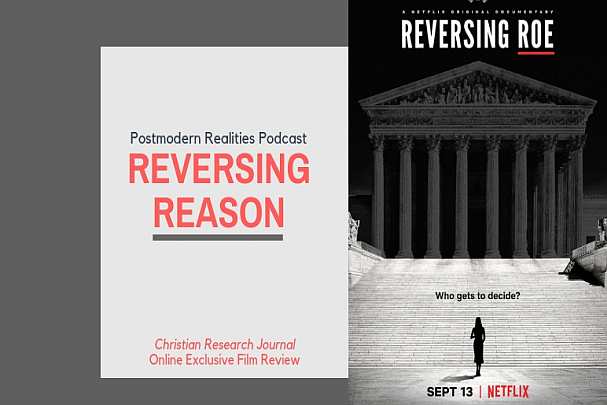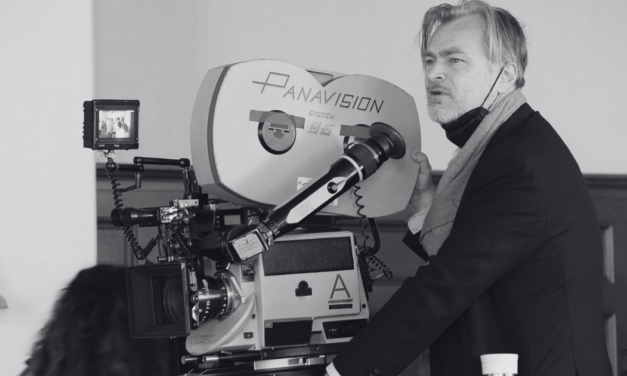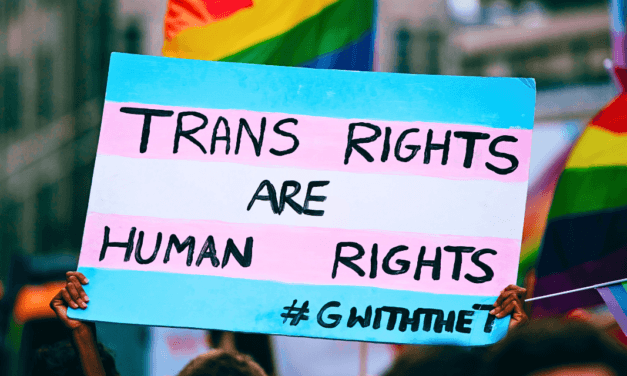
A documentary film review of
Reversing Roe
Directed by Ricki Stern and Anne Sundberg
(Netflix, 2018)
If the battleground over abortion resembles a chessboard, the new Netflix documentary Reversing Roe is an offensive bombardment on the pro-life movement’s front lines. The problem is that the film talks around abortion without ever really talking about it at all.
Its release is eerily timely. Its conclusion set the stage for the dramatic showdown over Supreme Court nominee Brett Kavanaugh. And its method is strikingly similar to coverage of the Kavanaugh debacle — a postmodern feelings-led approach that runs roughshod over the ins and outs of valid arguments.
The documentary juxtaposes a brief history of abortion rights with recent efforts several states have made since Roe’s inception to limit access to abortion. From the pre-Roe era of illegal abortions — whether “therapeutic” and performed in hospital settings or done with coat hanger segments in hidden rooms — to President Trump’s inauguration and nomination of Neil Gorsuch to the Supreme Court, Reversing Roe spells out the purported dangers of eliminating abortion as a constitutional right for women.
The film is overtly pro-abortion, and though pro-life advocates are interviewed throughout its 95-minute duration, filmmaking duo Ricki Stern and Annie Sundberg, acclaimed for documentary collaborations including Marathon: The Patriot’s Day Bombing (HBO, 2106), portray the pro-life movement uncharitably at best. Pro-life representatives are painted, on the whole, as religious zealots who target abortion providers under the (allegedly) false pretenses of protecting women’s health, and who do so in a way that is anti-medicine and anti-science.
“There is so much factual inaccuracy in these bills…which is infuriating,” claims the film’s protagonist, Dr. Colleen McNicholas, “especially from the standpoint of science and evidence and, just, facts.”
McNicholas, a gynecologist with a family of her own, travels extensively throughout the Midwest to perform abortions in areas where, thanks to incapacitating restrictions placed on abortion providers, women have severely limited access. She is shown kissing her child goodbye at dawn before hitting the road to fight another day for reproductive freedom.
Stern and Sundberg cherry-pick motivations of the pro-life movement as it developed, choosing to highlight faith as a driving-but-invalid factor, as well as religiously motivated racial undertones from segregated religious institutions. Prior to the Reagan election, political strategists reportedly spurred disgruntled evangelicals to vote Republican by pushing abortion (as an emotional tool) to the forefront, making tax exemptions for those institutions the prize beneath the flashy wrapping.
Demeaning insult to intelligent conservative voters aside, a cursory glance at history would demonstrate that when Roe v. Wade was decided by the federal court, faithful Christians responded like they always have when it becomes obvious that an entire class of human beings is being unjustly harmed. Think William Wilberforce and Martin Luther King, Jr. They could not, and cannot, stand for it.
Meanwhile, the strongest representation of the pro-life argument is a soundbite from Texas Right to Life’s John Seago: “The most important moral question of the abortion debate is ‘What is in the womb?’ Is it a person? Does it deserve our moral attention and protection or not?”
The problem is that the film never picks back up those central questions to examine them seriously. The answers lie in science, philosophy, and in the metaphysics that not even the filmmakers can escape employing in their own reasoning. It is no more religious to say that the women featured in the film are valuable and deserving of a right to life than to say that they’re not. Everyone does metaphysics. In missing the mark, the film fails to determine whether or not Roe is good constitutional law.
The film centralizes the issue on whether or not the government should have control over women’s bodies. The narrative follows the establishment of Roe and the back-and-forth that ensued, and examines the pro-life movement’s perceived goals that, according to the filmmakers, are to shame and oppress women by denying them access to needed abortion services, and to bomb abortion clinics in the name of religion.
Abortion advocates scoff at required ultrasounds and waiting periods prior to abortions as insults to women seeking a “low-risk medical treatment.” McNicholas dismisses “partial-birth abortion” as a term that the anti-choice movement invented, pointing out that only 1.3 percent of abortions occur after 21 weeks’ gestation. Never mind the simple line drawings of the late-term procedure that effectively shocked the nation. They are shrugged off as a ploy to horrify, a use of optics to support a created narrative.
The choice to focus on women’s reproductive freedom and bodily autonomy without grappling with the humanity of the unborn results in a host of assumptions leading to the premise that — contrary to the science of embryology — the unborn is not a member of the human family.
Consider the claims:
- Abortion prior to Roe was illegal and often dangerous for women. It was (and is) lethal for the unborn.
- After Roe, abortion became a low-risk medical procedure. It is safer than pregnancy. Safer for whom? Abortion always aims to result in the death of the unborn.
- Ultimately, abortion is about equality, bodily integrity, a view of life, and who should make important decisions. Does this equality extend to every human being? What about those being intentionally exterminated through abortion?
Wendy Davis’s appeal before the Texas Senate outright denies that the unborn are alive: “We all believe in the beauty and wonder that is human life. But I also believe that women already here are beautiful and they deserve to live…to determine the direction of their lives…to be recognized as full people.” As if denying these women the right to abort would somehow deem women less than full members of the human community. And what about the unborn ones?
Despite what the film claims, the pro-life argument is firmly grounded in science. From the point of conception, the entity in question is fully, distinctly, and wholly human. That evidence is anything but religious.
Further, there is no morally relevant difference between a human being as a zygote and a human being as an adult. Philosophically, human beings are the kinds of things that come into being all at once and simply mature according to their kind. It is their common humanity that grounds the equal rights they share. Other groundings confuse functioning as a human with being one, and create a value spectrum — and, consequently, a basic rights spectrum — on which some human beings matter more than others.
The assumptions regarding human worth that undergird abortion are cut from the same cloth as those bolstering any other form of bigotry that results in gross injustice, including the racism and sexism the film’s creators rightly despise. But instead of ethnicity or gender, abortion advocates appeal to a human being’s size, level of development, location, or dependency. In their attempt to demonize the “religious right,” they overlook their own inconsistency.
The anthropology that insists that the basis of democracy is absolute control over one’s body actually requires a lower view of the body. Closer to Gnosticism than Christianity, it deems one’s body subservient to desires and passions, and freedom requires denial of the body’s natural processes. In a world where autonomy, abortion, pleasure, and sex sans pregnancy are the highest goods, the reality is that women — who are biologically engineered to carry children — must deny and/or squelch aspects of womanhood in order to be “free.” And the price is the millions of human casualties along the way, the women and their children harmed because of abortion.
Setting aside any debatable legal and political points the film makes, Reversing Roe fails to take pro-life arguments seriously. If you’re looking for a balanced, intellectually honest portrayal of abortion rights, this isn’t it.
For pro-lifers wishing to engage pro-choice ideas, this film does powerfully reveal that abortion advocates demonstrate deep compassion for women and families, and truly believe that their work to make abortion accessible is a great societal good. Failing to grasp that and to allow it to temper interactions with those who disagree can result in the same kind of character attacks the film employs.
As the film closes, McNicholas the road warrior drives into the proverbial sunset, claiming, “Women have built their lives around the ability to make decisions about pregnancy. So we have to make sure that right is protected.”
Until storytellers endeavor to take both sides of the argument seriously, the chess game continues and each side will continue to move pieces around the board. As it stands, the evidence that abortion is, in fact, the intentionally killing of innocent human beings is insurmountable. It is a choice that no one ought to be allowed to make.
Perhaps Reversing Roe avoids the evidence because, like a well-protected queen, it cannot be overtaken. How many more will die before the truth is allowed to conquer and declare, “Checkmate”?
A victory that says human beings matter simply by virtue of being human is a win for all.
Megan Almon is a speaker with Life Training Institute and addresses audiences and trains students nationally on pro-life apologetics and related topics.








